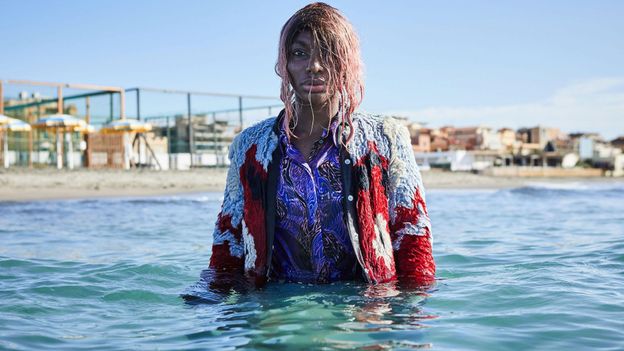Why this show is the future of TV


Finally, we are presented the most fantastical alternative. In a dreamlike sequence Arabella is in the now sunlit nightclub, where she buys her rapist a gin and tonic. They kiss and go back to Arabella’s flat, and stare intently at each other with naked tenderness before having sex, with her penetrating him. The next morning, she asks him to go and he walks out, still naked, while the bloodied version of him from the earlier alternative ending also crawls out from under the bed and follows.
It is clear none of these scenarios have actually happened: these are the alternatives Arabella is considering for her new book, now titled January 22nd and based on what happened to her. But as she imagines how her story could end, she dismisses each one. In an interview with New York Magazine, Coel pondered: “What does closure look like? It’s not that it ends. For me, I look at the last four years and I feel this overwhelming sense of euphoria and pain”. Instead of tying a neat narrative ribbon around the assault, in the episode’s coda we see the book is finally completed, and as Arabella is about to read the foreword at an event in a bookshop, she is momentarily transported back to that Italian beach before the episode cuts to black. Because what I May Destroy You does in its entirety is serve as its own ending. There’s no closure to be had in a single moment, no confrontation or pithy monologue that would make sense of what happened to Arabella or Coel – but instead both of them channelled their pain, their empathy and their anger into art that is radical, raw, and magnificent.
While so many of the entries in BBC Culture’s 100 greatest TV series of the 21st Century poll have elevated TV as an art form, I May Destroy You is perhaps the show that, most of all, speaks to its future. Coel ripped up the rule book and played with form, structure and pace; gave voice to underrepresented people, themes and consequences; and came up with a series unlike any that had preceded it, showing what she, and other artists, are able to do when supported in creating singular personal visions. Looking ahead to the TV series of the next decade, let’s only hope similarly fearless creativity can be allowed to prosper.
The 100 greatest TV series of the 21st Century:
– The 100 greatest TV series of the 21st Century
– Who voted?
– How the way we watch TV has changed
– What makes The Wire such a great a number one
– Twenty-five series that define the 21st Century
How many of these series have you seen? Let us know using the hashtag #TVOfTheCentury on our Facebook page or message us on Twitter.
Love film and TV? Join BBC Culture Film and TV Club on Facebook, a community for cinephiles all over the world.
If you would like to comment on this story or anything else you have seen on BBC Culture, head over to our Facebook page or message us on Twitter.
And if you liked this story, sign up for the weekly bbc.com features newsletter, called The Essential List. A handpicked selection of stories from BBC Future, Culture, Worklife and Travel, delivered to your inbox every Friday.








